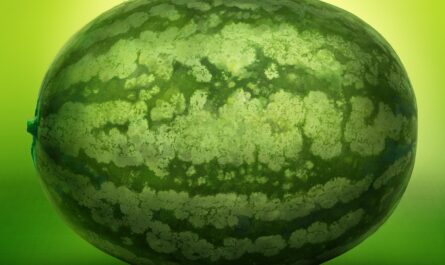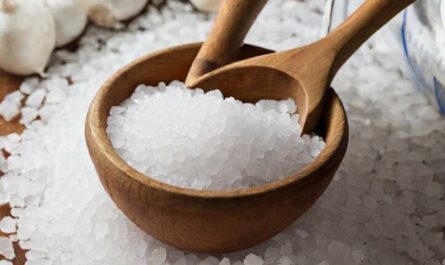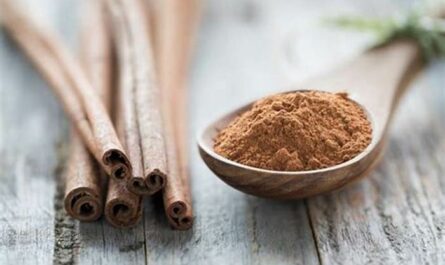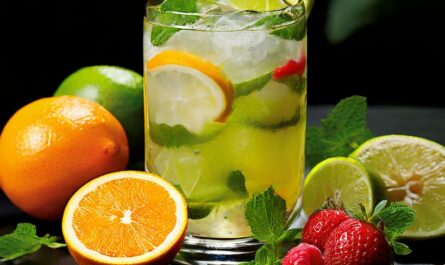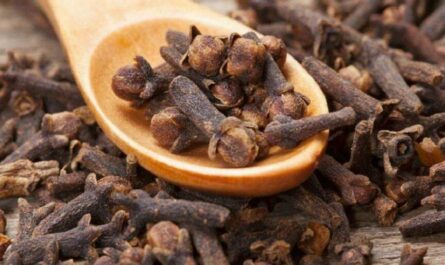Are you concerned about your cholesterol levels? You’re not alone. According to the Centers for Disease Control and Prevention (CDC), over 102 million American adults have total cholesterol levels above the recommended 200 mg/dL. This puts them at increased risk for heart disease.
But here’s the good news: making simple dietary changes and incorporating certain foods into your meals can help lower your cholesterol levels. This article will explore 24 of the best foods that can effectively lower cholesterol levels. These foods are not only delicious but also packed with nutrients that promote heart health.
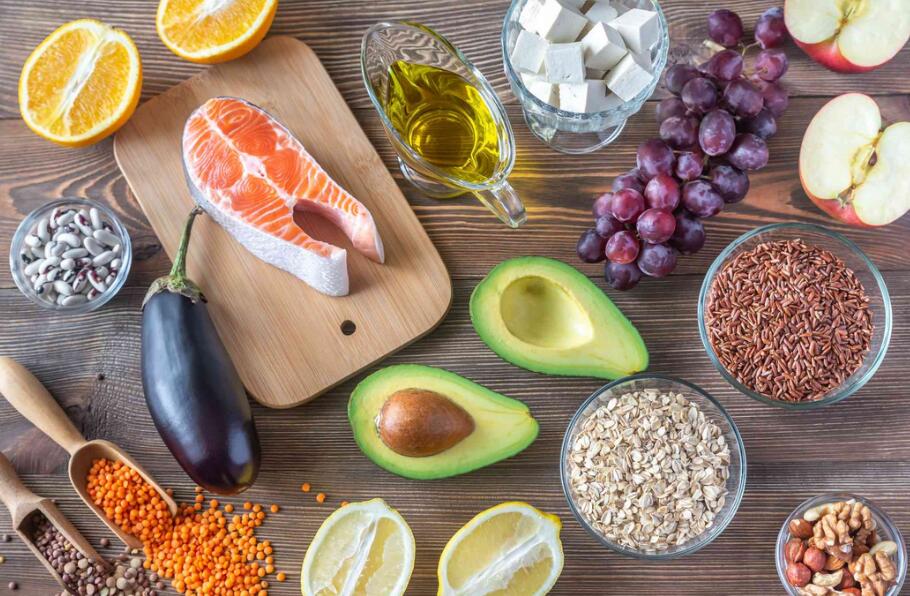
What is Cholesterol?
Before we dive into the foods that can help lower cholesterol, let’s take a moment to understand what cholesterol is and why it matters for your health.
Cholesterol is a waxy substance found in your blood that plays a vital role in building cell membranes and producing hormones. There are two main types of cholesterol:
- High-density lipoprotein (HDL): Known as “good” cholesterol, HDL helps remove excess cholesterol from your arteries and transport it back to the liver for elimination. Higher levels of HDL cholesterol are associated with a lower risk of heart disease and stroke.
- Low-density lipoprotein (LDL): Referred to as “bad” cholesterol, high levels of LDL can lead to the buildup of plaque in your arteries, increasing your risk of heart disease and stroke. When LDL cholesterol levels are too high, the excess cholesterol can accumulate in the walls of your blood vessels. This can cause them to narrow and harden over time.
24 Best Foods That Can Help Lower Cholesterol
1. Oats
Oats are rich in a type of soluble fiber called beta-glucan. Eating oats can lower LDL cholesterol by 5-10%. Beta-glucan works by forming a gel-like substance in the gut that binds to cholesterol and prevents its absorption.
Studies have found that eating just 3 grams of beta-glucan fiber per day can significantly reduce cholesterol levels. A typical serving of oats (about 1/2 cup dry) contains about 4 grams of beta-glucan. So it’s easy to get enough of this beneficial fiber by enjoying oats regularly.
You can enjoy oats as oatmeal for breakfast or add them to baked goods like muffins, bread, and cookies for a heart-healthy twist.
2. Barley
Like oats, barley is high in beta-glucan fiber. Eating barley can reduce LDL cholesterol by around 7%, according to a 2016 review of 14 studies.
Barley is also a good source of protein, vitamins, and minerals like selenium, magnesium, and niacin. It has a chewy texture and nutty flavor that works well in a variety of dishes.
You can add barley to vegetable soups, beef stew, mushroom risotto, or a cold grain salad with chopped vegetables and herbs.
3. Beans and Lentils
Beans and lentils are excellent sources of soluble fiber, which can significantly lower cholesterol levels. A small study found that eating one serving of lentils per day lowered LDL cholesterol by 5%. You can add beans and lentils to salads, soups, chilis, and rice dishes for a fiber and protein boost.
Other legumes like chickpeas, black beans, kidney beans, and navy beans are also high in cholesterol-lowering fiber. Legumes are a staple in many heart-healthy eating patterns like the Mediterranean diet and vegetarian diets.
4. Nuts
Nuts like almonds, walnuts, pistachios, and peanuts are rich in unsaturated fats, fiber, protein, vitamins and minerals. Eating 1.5-2 ounces of nuts per day as part of a heart-healthy diet can help lower LDL cholesterol by 5-7%. Try to choose raw or dry-roasted nuts without added salt or sugar for the most benefits.
In addition, Nuts are also a good source of plant sterols, which are natural compounds that block the absorption of cholesterol in the gut. Almonds and pistachios are particularly high in plant sterols.
You can sprinkle nuts on oatmeal or yogurt, add them to salads and stir-fries, or enjoy them on their own as a nutritious snack.
5. Avocados
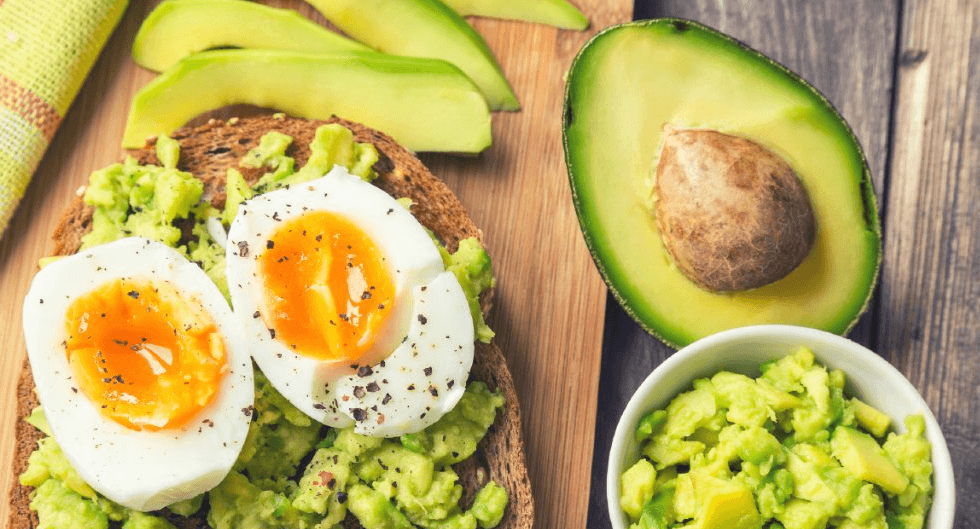
Avocados are high in monounsaturated fats and fiber, both of which help lower cholesterol. One avocado provides 10 grams of fiber. In addition, Avocados are also rich in potassium, a mineral that helps regulate blood pressure.
They’re a good source of vitamins K, C, and B6 as well. You can add diced avocado to omelets, grain bowls, tacos, and burritos, or use mashed avocado as a creamy pasta sauce.
6. Fatty Fish
Fatty fish like salmon, mackerel, herring, and sardines are high in omega-3 fats, which have anti-inflammatory effects and can help raise HDL cholesterol. Omega-3s also prevent cholesterol from crystallizing in the arteries.
The best sources of omega-3s are cold-water fatty fish like salmon, tuna, mackerel, and sardines. You can also get omega-3s from plant sources like flaxseeds, chia seeds, and walnuts. If you don’t eat fish, consider taking a fish oil supplement to get enough omega-3s.
7. Soy Foods
Soy protein from foods like tofu, tempeh, edamame, and soy milk can lower LDL cholesterol by 3-4% in adults. It works by preventing the body from absorbing cholesterol.
In addition, Soy foods are also high in fiber, vitamins, and minerals like calcium, iron, and zinc. They’re a good source of plant-based protein for vegetarians and vegans. You can try using tofu in stir-fries, scrambles, and soups, and tempeh in sandwiches and salads.
8. Apples

Apples are a good source of pectin, a type of soluble fiber that lowers cholesterol. One small apple contains about 4 grams of fiber. Apples also contain polyphenol antioxidants that prevent LDL from oxidizing and causing plaque buildup in the arteries. You can enjoy apples on their own or slice them into oatmeal or salads for added crunch and fiber.
Apples are also a good source of vitamin C, an antioxidant that protects against heart disease. They’re low in calories and high in water content. This makes them a filling and hydrating snack.
9. Citrus Fruits
Citrus fruits like oranges, grapefruits, and lemons are high in pectin, the same cholesterol-lowering fiber found in apples. They’re also rich in vitamin C, an antioxidant that protects against heart disease. You can enjoy whole citrus fruits or add a squeeze of citrus juice to water or tea.
Citrus fruits are also a good source of folate. This is a B vitamin that helps lower levels of homocysteine, an amino acid that can damage artery walls. Grapefruit in particular can lower cholesterol levels. But it can interact with certain medications. So You should check with your doctor before adding it to your diet.
10. Berries
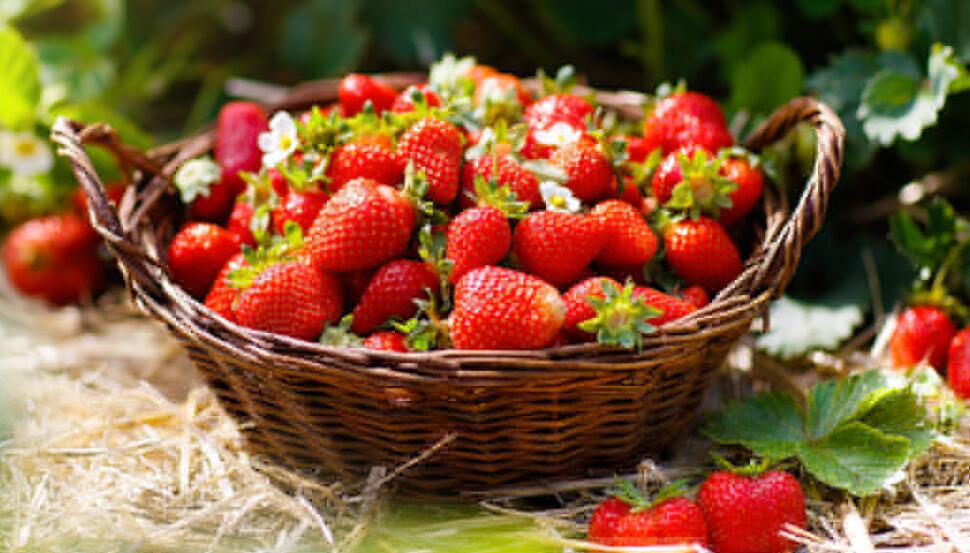
Berries, especially raspberries and strawberries, are packed with soluble fiber and antioxidants called polyphenols. These compounds work together to lower LDL cholesterol and raise HDL cholesterol. Add fresh or frozen berries to oatmeal, yogurt, smoothies, and salads for a pop of color and flavor.
Berries are also low in calories and high in vitamin C, making them a nutritious addition to any diet. Blueberries, blackberries, and acai berries are also good sources of anthocyanins and antioxidants. This can protect against inflammation and oxidative stress.
11. Grapes
Grapes contain beneficial plant compounds called flavonoids that help lower cholesterol. A study found that eating 3 cups of red grapes per day reduced LDL cholesterol by 9% and raised HDL cholesterol by 15%. You can enjoy grapes on their own or add them to salads and snacks for a burst of sweetness and nutrients.
Besides, Grapes are also a good source of resveratrol, an antioxidant that protects against heart disease and cancer. Red and purple grapes have the highest levels of resveratrol and other beneficial compounds. Freeze grapes for a refreshing summer treat or add them to smoothies and fruit salads.
12. Dark Leafy Greens
Dark leafy greens like spinach, kale, and collards are high in fiber and antioxidants that promote heart health. They’re also a good source of dietary nitrates, which relax blood vessels and lower blood pressure.
In addition, Leafy greens are also rich in vitamins A, C, and K, as well as minerals like iron and calcium. They’re low in calories and high in fiber, making them a filling addition to any meal. You can use spinach in place of lettuce in salads, and add kale to smoothies and juices.
13. Garlic
Garlic contains sulfur compounds that may help lower cholesterol and prevent blood clots. Some studies suggest that aged garlic extract supplements can reduce total and LDL cholesterol. However large amounts of fresh garlic would need to be consumed for the same effect.
Garlic is also a good source of vitamin C, selenium, and manganese. It has anti-inflammatory and antimicrobial properties that may help boost immunity and protect against chronic diseases. You can add minced garlic to stir-fries, pasta dishes, soups, and stews for added flavor and nutrition.
14. Dark Chocolate
Dark chocolate is rich in flavonoids, the same beneficial plant compounds found in grapes and berries. A small study found that eating about one ounce of dark chocolate per day lowered LDL cholesterol by 6%. Choose dark chocolate with at least 70% cocoa solids and enjoy it in moderation for the most benefits.
Dark chocolate is also a good source of magnesium, iron, and prebiotic fiber that feeds beneficial gut bacteria. It contains theobromine, a compound that may help lower blood pressure and improve blood flow. You can enjoy a small square of dark chocolate as a healthy dessert or add cocoa powder to smoothies and baked goods.
15. Extra Virgin Olive Oil
Extra virgin olive oil is one of the healthiest fats for the heart. It’s rich in monounsaturated fats and antioxidants that lower LDL cholesterol, reduce inflammation, and prevent blood clotting.
Olive oil is also a good source of vitamin E, an antioxidant that protects against oxidative stress and inflammation. It contains oleocanthal, a compound that has anti-inflammatory effects similar to ibuprofen. You can drizzle olive oil over salads, use it to sauté vegetables, or dip whole-grain bread.
16. Vegetable Oils
Liquid vegetable oils like canola, sunflower, and safflower oil can help lower LDL cholesterol. These oils are high in unsaturated fats that are good for heart health.
Vegetable oils are also a good source of vitamin E and phytosterols, plant compounds that help lower cholesterol. They’re low in saturated fat and high in monounsaturated and polyunsaturated fats that are beneficial for the heart. You may choose expeller-pressed or cold-pressed oils for the most nutrients and flavor.
17. Green Tea
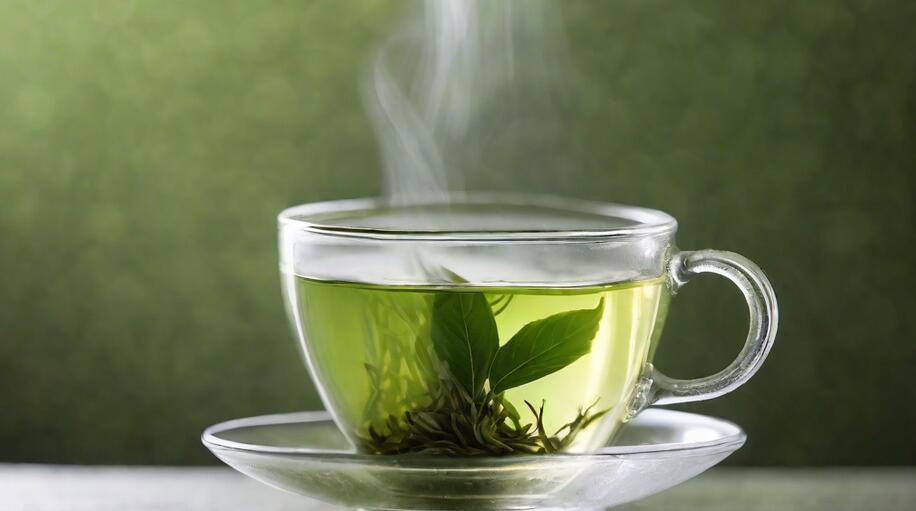
Green tea is high in catechin antioxidants that help lower cholesterol and protect against heart disease. One review found that drinking green tea significantly lowered total and LDL cholesterol.
Green tea is also a good source of L-theanine, an amino acid that promotes relaxation and reduces stress. It contains caffeine, which can improve mental alertness and physical performance. You can enjoy green tea hot or iced, or add matcha powder to smoothies and baked goods for a nutrient boost.
18. Foods Fortified With Sterols/Stanols
Some foods like margarine, orange juice, and yogurt are now fortified with plant compounds called sterols and stanols. These substances block the absorption of cholesterol in the gut. This can help to lower LDL levels by up to 10%.
Sterols and stanols are found naturally in small amounts in fruits, vegetables, nuts, and seeds. But fortified foods provide a more concentrated dose. You can look for products that contain at least 0.65 grams of plant sterols and consume them as part of a balanced diet for the most benefit.
19. Eggplant and Okra
Eggplant and okra are high in soluble fiber. This helps lower cholesterol by binding to it in the digestive tract and removing it from the body. One cup of cooked eggplant contains 2.5 grams of fiber, while a cup of okra has 3 grams.
In addition, Eggplant is also a good source of anthocyanins, antioxidants that give it its purple color and may help protect against heart disease and cancer. Okra is rich in vitamins A, C, and K, as well as folate and calcium. Try grilling eggplant slices and using them as a sandwich filling, or add okra to gumbo, curries, and stir-fries.
20. Flaxseeds
Flaxseeds are tiny brown seeds that are high in fiber, omega-3 fats, and lignans. This is a type of plant compound that may help lower cholesterol. One tablespoon of ground flaxseed contains 2 grams of fiber.
Flaxseeds are also a good source of protein, magnesium, and thiamin. They contain both soluble and insoluble fiber, which work together to promote digestive health and regularity. You can grind flaxseeds in a coffee grinder or blender to release their beneficial oils and make them easier to digest.
21. Chia Seeds
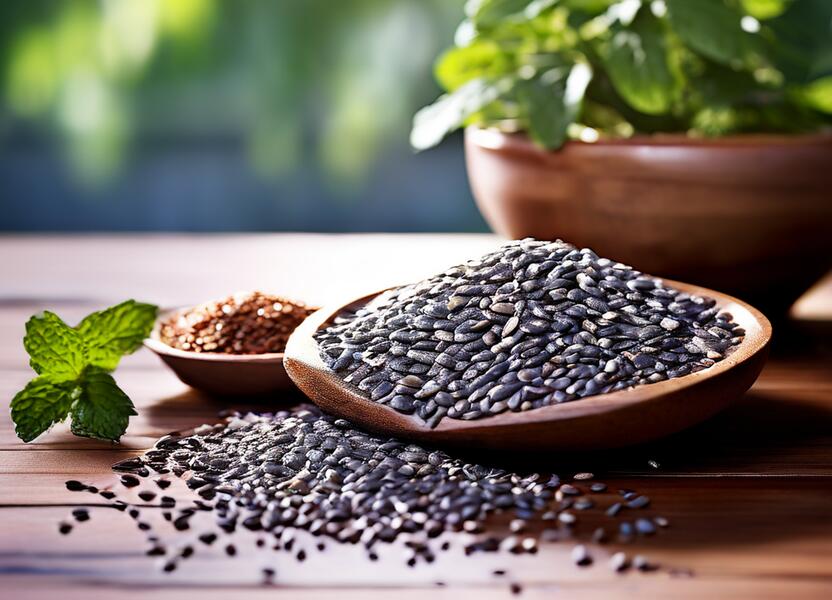
Chia seeds are small black or white seeds that are high in fiber and omega-3 fats. Two tablespoons of chia seeds provide 10 grams of fiber. They can absorb liquid and form a gel, which may help reduce cholesterol absorption in the gut.
Chia seeds are also a good source of protein, calcium, and magnesium. They’re high in antioxidants that protect against inflammation and oxidative stress. Soak chia seeds in milk or yogurt to make a pudding-like dish, or use them as an egg substitute in vegan baking.
22. Pears
Pears are an excellent source of fiber, with one medium pear providing 5.5 grams. They’re especially high in a type of soluble fiber called pectin, which helps lower cholesterol. Pears also contain antioxidants like flavonoids and vitamin C. You can enjoy fresh pears on their own or slice them into salads, oatmeal, or yogurt.
Pears are also a good source of potassium, a mineral that helps regulate blood pressure and supports heart health. They’re low in calories and high in water content, making them a hydrating and filling snack.
23. Broccoli
Broccoli is a cruciferous vegetable that’s high in fiber, vitamins, and minerals. One cup of cooked broccoli contains 5 grams of fiber. It’s also a good source of calcium, potassium, and folate.
Besides, Broccoli is also rich in sulforaphane, a compound that may help reduce inflammation and protect against cancer. It contains indole-3-carbinol. This is another compound that supports detoxification and hormone balance.
24. Cinnamon

Cinnamon is a spice that may help lower cholesterol by reducing the amount of cholesterol produced by the liver. One study found that taking 1-6 grams of cinnamon per day lowered total and LDL cholesterol.
Cinnamon is also rich in antioxidants that help reduce inflammation and protect against chronic diseases like heart disease and diabetes. It contains compounds that may improve insulin sensitivity and blood sugar control. You can use cinnamon sticks to flavor tea or coffee, or sprinkle ground cinnamon on fruit, nuts, and whole-grain toast.
How to Incorporating Cholesterol-Lowering Foods into Your Diet?
To effectively lower your cholesterol levels, it’s important to create a balanced meal plan that includes a variety of cholesterol-lowering foods. Here are some tips and sample meal ideas:
- Start your day with a bowl of oatmeal topped with berries and nuts
- Enjoy a salad with leafy greens, avocado, and an olive oil-based dressing for lunch
- Snack on fresh fruits, vegetables, and a handful of nuts
- Incorporate fatty fish, legumes, or tofu into your dinner meals
- Replace refined grains with whole grains like quinoa, brown rice, or whole-wheat bread
Remember, portion control and overall dietary balance are key to maintaining healthy cholesterol levels.
The Bottom Line
Incorporating these foods can help lower cholesterol and significantly improve your heart health. Remember, everyone’s journey to better heart health is unique. It’s essential to find what works best for you and to consult with a healthcare professional. With patience, persistence, and a commitment to your well-being, you can take control of your cholesterol levels and enjoy a healthier, happier life.

